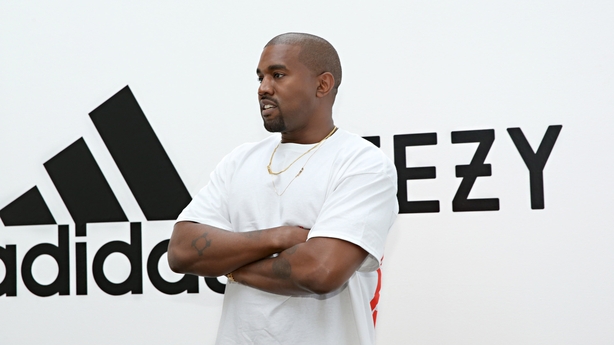Adidas struck an optimistic note today as it reported a drop in inventory levels, saying retailers are "visibly" more interested in its autumn/winter 2024 range as the German sportswear giant seeks to boost its brand's appeal.
CEO Bjorn Gulden, in the job since January, has been driving a turnaround at the company bruised by last year's break-up with rapper Kanye West, who goes by Ye, which left Adidas with unsold Yeezy shoes worth €1.2 billion.
Adidas last month lifted its full-year outlook partly thanks to Yeezy shoe releases, and the company said today that the popularity of its "terrace" shoe ranges Samba, Gazelle and Spezial was also driving growth in its lifestyle business.
"We see the interest in our brand and products increasing in all markets and are now experiencing a visibly higher interest from retailers for the sell-in for our Fall/Winter 2024 range," Gulden said in a statement.
He added, though, that Adidas' current performance is still "not good enough".
The company expects a loss of €100m this year, having warned in February of a possible €700m loss as a result of the highly profitable Yeezy line ending.
Shares in Adidas, which have gained more than 30% since the start of the year, were down by around 1% this morning.
Inventory levels fell 23% year on year to €4.85 billion, a little more than expected, Adidas said. Apparel and footwear retailers in the US and elsewhere have been struggling with excess stocks and slashing prices to help move products off the shelves.

Adidas' gross margin for the quarter rose by 0.2 percentage points at 49.3%, helped by reduced freight costs and fewer discounts.
"Adidas' competitive position compared to Nike is improving," said Robert Schramm-Fuchs, portfolio manager at Janus Henderson, which holds Adidas shares.
Gulden has been focused on building stronger relationships with wholesalers after previous management prioritised Adidas' own stores and online, Schramm-Fuchs said.
"Adidas needs to earn back the shelf space, but I think they have the right product to do it," he said.
The renewed focus on wholesale also comes as newer running and lifestyle brands increase competition.
"Hoka, On Running, and others are taking space in some of the more premium sports retailers," said Adam Cochrane, analyst at Deutsche Bank.
Currency-adjusted sales in North America fell 8.8% due to reduced sales to wholesalers there, Adidas said, adding that high inventory levels in the US would continue to impact its business "for a while".
Footwear sales grew 6% over the third quarter while apparel fell by 6%, a trend impacting other sportswear brands such as Puma as shoppers prioritise more essential purchases.
Adidas' sales in Greater China grew by 5.7% in currency-adjusted terms, after growth of 16.4% in the second quarter. The company has been working to rebuild its brand in China where it had lost market share to rivals.
Citi analyst Monique Pollard said the China sales figure was lower than expected, likely reflecting fewer Yeezy shoes being sold.
Yeezy shoe releases globally generated revenue of €350m, "somewhat lower" than the third quarter of last year, Adidas said.

